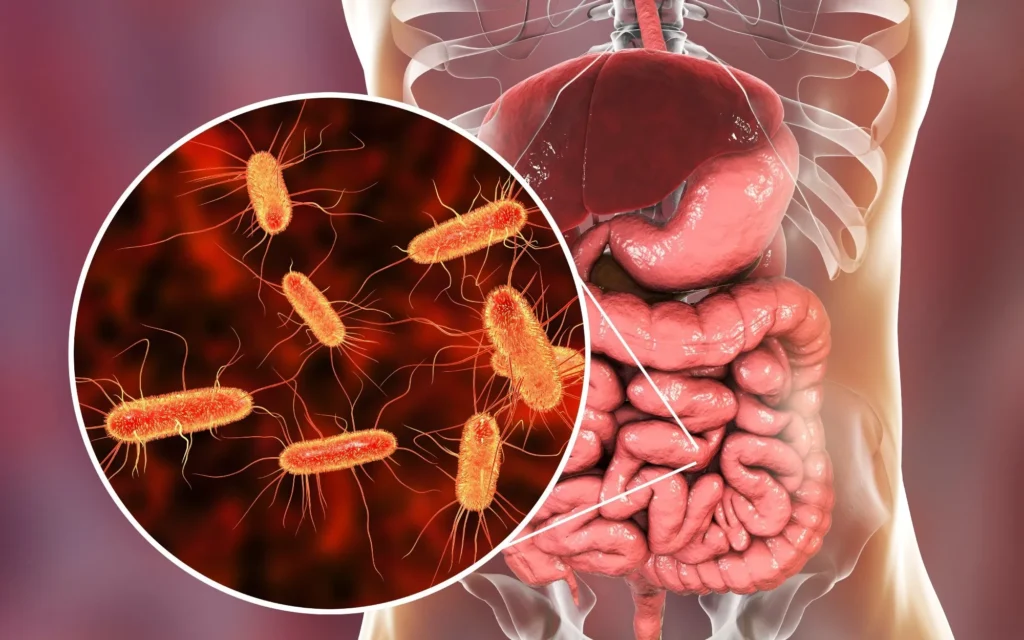Read time : 5 minutes

Your gut, or gastrointestinal tract, is responsible for breaking down the food you eat, absorbing nutrients, and eliminating waste. But gut health goes beyond digestion—it plays a key role in immunity, metabolism, and even mental well-being. At the heart of gut health is the gut microbiome—a diverse community of trillions of bacteria, both beneficial and harmful, that live in your intestines.
How Does Nutrition Affect Gut Health?
Nutrition is one of the most powerful tools for shaping your gut microbiome. A diet rich in whole, plant-based foods provides fiber, polyphenols, and natural compounds that feed good bacteria. On the other hand, diets high in sugar, refined carbohydrates, and processed foods can disrupt this balance, reducing microbial diversity and increasing inflammation.
To support a healthy gut, focus on nourishing these beneficial microbes. Diversity is key—both in the types of bacteria and in the foods you eat. Aim to include at least 2–4 cups of fiber-rich, prebiotic, and probiotic foods in your weekly diet. These support digestion, regulate bowel movements, and protect against common digestive issues like constipation and bloating.
Foods That Support Gut Health
Here are a few locally available foods that support gut health:
- Bananas – A great source of prebiotics (non-digestible fibers that feed good bacteria).
- Oats – Contain beta-glucan, a type of soluble fiber that helps regulate digestion.
- Legumes – High in fiber and plant-based protein, promoting microbial diversity.
- Avocados – Packed with fiber and healthy fats that support gut lining integrity.
- Yogurt – A natural source of probiotics, which are live beneficial bacteria that help maintain microbial balance.
- Salmon – Rich in omega-3 fatty acids, which help reduce inflammation in the gut.
Important Dietary Habits for Gut Health
- Hydration – Drinking enough water supports smooth digestion and nutrient absorption.
- Mindful fat intake – Excess saturated fats can feed harmful bacteria, opt for healthier fats like olive oil or fatty fish.
- Limiting irritants – Too much caffeine or alcohol can irritate the digestive tract and upset microbial balance.
All Bacteria In The Gut Are Harmful?

No! Your gut contains both helpful and harmful bacteria. When in balance, beneficial bacteria aid digestion, support immune function, and help your body absorb nutrients. Disrupting this balance can lead to digestive discomfort and chronic illness.
How Does Gut Health Impact Mental Health
The gut-brain axis is the two-way communication network between your gut and brain, involving nerves, hormones, and biochemical signals. The gastrointestinal tract is sensitive to emotions including anger, anxiety, sadness, elation, of which all of these feelings (and others) can trigger symptoms in the gut. According to Harvard Health Publishing, the brain has a direct effect on the stomach and intestines. For example, the very thought of eating can release the stomach’s juices before food gets there. This connection goes both ways. A healthy gut microbiome can positively impact mental health, potentially easing symptoms of anxiety, depression, and even brain fog. Conversely, poor gut health may contribute to mood disorders and cognitive decline.
Tip: Start small, add a serving of fermented food or an extra helping of vegetables to your plate this week. Your gut will thank you, and over time, your overall health will benefit.
RD, LD Julius Sammah
MyHealthCop Certified Dietician
Ready to Take the First Step?
👉 Book a 1-on-1 Session with any of our Certified Nutrition professionals to start your health journey today. [DOWNLOAD THE APP]